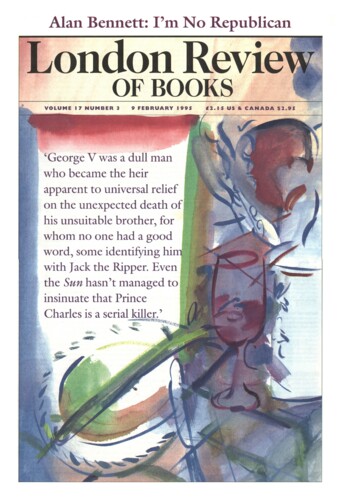In memory of Cecil Torr
It is hard to believe that he lived till the rise of the Nazis
And the General Strike and nine or ten Armistice Days
And that I was a child putting flowers on my grandmother’s grave
Three churchyards away on the day that he died.
His forebears had gossiped their hold on the centuries.
One of them spotted Napoleon on the Bellerophon,
Moored in Torbay, with its prisoner stumping morosely
About on the deck: worldwide Boney, not looking his best.
Torr himself saw Garibaldi processing through London
As well as a sultan, a king and two French elder statesmen,
But not half as plain as the devil who hid in the bracken
Beside Yarner Wood, or a group of the spiritual men
(As they used to call ghosts on the moors), or a stranger
Seen taking a little-known path to the top of a tor.
Never whimsical, even when speaking of saints like Sebastian
And Pancras who after their swim in the river of Paradise
Sat on a sunny bank drying their haloes,
He was sceptical: when the good men of Assisi
Described how St Francis knelt groaning in prayer all night long
He said with some reverence that Francis was probably snoring.
He was lazy himself except on his travels abroad.
He was cynical likewise: he felt that the clever embezzlers
And wayward but brilliant financiers imprisoned on Dartmoor
Might be asked to take over the work of his own district council,
An honest but deeply incompetent body of men
Who had just spent five pounds on a signpost which got it all wrong,
Sending people to Wreyland instead of the station.
He watched Brunel’s railway advancing (I watched it retreating)
Drumming its way up the valley from Newton to Moreton.
To begin with, his feelings were mixed, for it paid well and lured
The farm labourers out of their fields. But he came to enjoy it:
The evening train hooted on leaving the station
On its way to the plain, and the owls hooted back.
Engines had names and he met them all over the world.
He once saw Lars Porsena letting off steam outside Clusium.
The First World War seemed to mean little to him, being neither
Crimean nor Boer nor connected with Boney.
He scattered allusions: a boy who played tricks
On the spinsters of Lustleigh was killed in a battle, the name
Of which no one remembered; a wounded old friend of the author
Had married his nurse; on Armistice morning at Bovey
A flag had got stuck at half-mast after four years of killing.
He remarked that the prisoners of war in the neighbouring fields
Looked like the farmers’ sons working beside them.
Well, they would, wouldn’t they? Saxon blood, probably.
But he got angry about the memorial, genteel and safe
Installed in the church, for he felt that the dead deserved granite
Somewhere up there on the tor which hung onto the light
Long after the Cleave was as dark and as wet as a trench.
Our paths almost crossed in the way that paths do on the moors.
He was interested in the name Beer and discussed it at length.
He believed it identified people who lived near a wood.
(In the days of surnaming it would have been difficult not to.)
My grandmother’s people were natives of Chagford.
If she had not decided to go to Torquay
And enter good service, she might have been Cecil Torr’s housemaid,
Streamering up to his room with a ewer of hot water.
He ended his small talk with thoughts of the little volcano
That long ago sneezed in what now is his parish, with dreams
Of a time when the soft parts of Dartmoor would sink in the sea
And the granite which held his house up in the air all those years
Would have turned into Wreyland, a reef on an up-to-date chart
Much respected by shipping and always made brilliant by waves.
I wish he could talk to me now that the day is declining
And the spiritual men are preparing to walk on the moors,
Talk about chimneys and highwaymen, talk about anything.
They say I have symptoms which can be controlled but not cured.
I am the same age as he was when chatting his way
Into darkness, his notions cavorting around him like fireflies.
Send Letters To:
The Editor
London Review of Books,
28 Little Russell Street
London, WC1A 2HN
letters@lrb.co.uk
Please include name, address, and a telephone number.

